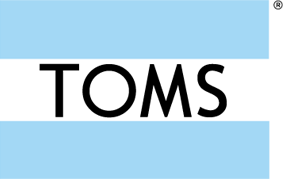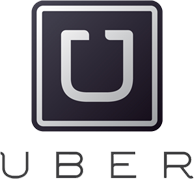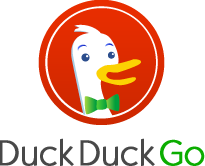How To Create A UVP & Brands That Nailed It
Differentiation is a common denominator of successful brands. A Unique Value Proposition (UVP) is a fundamental statement that stakes your claim in a market category. It’s the most important part of your positioning statement and ultimately answers why your target audience should engage with your brand. For brands creating new market categories, the UVP is the answer to why they should consider you at all.
Your Brand’s Unique Value Proposition is NOT:
A list of all your features and functionality.
How your offering is better (more on that later).
A definition of what your brand does.
Your Brand’s Unique Value Proposition IS:
THE THING your brand offers that NO OTHER BRAND can or does.
Really not that complicated at face value.
Don’t Have a UVP? You’re Not Alone.
A LOT of brands have trouble creating UVPs with teeth. Some get lost in their own obsession with the technical abyss of features and functionality. Brand leaders fall in love with their creation (the product itself) and stop thinking about their competition or their end-users. Others understand their unique offering but are too afraid to hang their brand on a single identifiable differentiator – a fear that ironically leads to the marginalization of a brand that ends up feeling, sounding and looking like everyone else. (P.S. Your competition loves it when you do this.)
Tiny Bully Branding Agency has worked with many brands that have killer offerings but need the motivation to own their most differentiating element. Existing mega-brands don’t always have to rely on a UVP because they have the marketing muscle to use repetition (ie. advertising budgets) to get their audience’s attention. This luxury allows them to get lazy, which is when competing brands with killer UVPs can strike.
How to Create Your Unique Value Proposition
The UVP is only one element of your brand and its identification requires you to go through the process of establishing your target audience and determining your competition.
The following formula can help to get you there:
For [Insert Audience], my brand is the ONLY brand that [Insert Your Unique Value Proposition] because it [Features and Functionality that make your UVP believable].
Creating a value statement comes down to putting options down on paper and asking your team:
Can any other brand put their name in this statement and have it be true?
If the answer is no, you have the beginning of your UVP.
A brand’s UVP is not just an internal phrase or positioning element—it’s a core element that should live in all brand communications, visuals, and actions. For many brands whose products are similar to others on the market, their unique value proposition opportunities lie in how they deliver those products.
Examples of Brands With Killer Unique Value Propositions
Brands with truly unique products or technologies have an easier time creating unique value propositions that stick. If you have the only flying car, it’s not hard to identify the unique value you’re providing to audiences looking for faster travel with less traffic. But fewer brands fall into the flying car model, with most having more nuanced differences that come down to identifying with the emotional drivers of consumers. Here’s a handful of household names that started as small brands with big bold unique value proposition.

A Footwear Brand About Soul…Not Soles
They make perfectly good shoes, but their unique value proposition has nothing to do with the product itself. They built their brand on giving back to those in need—a differentiator that got them their foot in the door when they faced off against behemoth footwear brands. They built an emotional UVP. They live it … they even branded it. Their advertising and website focus on messaging and visuals focusing on hope … and the people they are giving it to. It’s a strong reason to consider buying TOMS when there are certainly similar, cheaper or easier-to-find options.

An Online Retailer Who Overcame Purchase Barriers
Zappos sells many of the same brands offered through other online retailers or in brick-and-mortar stores. However, they have embraced a UVP that focuses nearly entirely on the exemplary service they provide to their customers. Zappos’ “Powered by Service” unique value proposition is a mantra that eliminates the fear of buying shoes online and not having them fit. The web’s most popular shoe store promises: “Fast, Free, Shipping & Returns” and live it with a brand model that focuses on attention (and budget) on customer service.

Revolutionizing Transportation by Promising Rides “At The Tap Of A Button”
The Uber brand didn’t have stiff technology competition when they entered the market, but they did launch a new product category in that people universally hailed cabs when they needed a ride. The idea of an app that summoned private drivers was new. But they didn’t hang the brand on the app—they created a UVP that promised safe, reliable rides … “at the tap of a button.” The UVP focused on the pain point of their audience—the cumbersome process of chasing cabs and having to wait for rides. Uber’s unique value proposition focused on instant gratification and convenience—the idea of being “Everyone’s Private Driver”.

A Groundbreaking Search Engine That Promises Not To Be Shady
DuckDuckGo originally started as the search engine that provided an answer to your question, not just links to search through. However, when the site’s founder realized how many questions he was receiving from users about privacy, he realized that there was a market for: “The search engine that doesn’t track you.” And thus DuckDuckGo’s UVP was born. The company took off after the Edward Snowden scandal opened the public’s eyes to the extremes of information tracking, and made the public more appreciative of DuckDuckGo’s ability to provide everything they needed from a search engine, without it keeping their personal information in return.

The Software Company That Overcame Stereotypes by Saying You Don’t Need To Box Yourself In
In a time where there were no other options but software, and disappointing services for Customer Resource Management – Salesforce developed an entirely new platform of CRM, based in the cloud and paid for as a monthly service. Their unique value proposition made it simple: “No hardware. No software. No boundaries.”

A Speaker Company Who Differentiated Themselves From The Bluetooth Crowd
With most people turning to Bluetooth wireless speakers for their music, Sonos knew they needed to use a different strategy to differentiate themselves in the market. They created a Hifi Speaker that transmits music through your Wifi connection – which has a broader reach and can be connected to multiple devices – making it possible to play music in every room of your house at the same time. Not just one speaker. Their unique value proposition claims ownership of the wireless market with high fidelity sound quality: “The Wireless Hifi System.”

The Dating Site That Shows Sometimes You Just Can’t Deny The Numbers
As one of the first dating sites ever created, Match.com needed to prove that none of the new dating sites could live up to its promise of finding you the one. They turned to statistics to help prove their point. “1 in 5 relationships start online & more of them start at Match.com.” Their unique value proposition uses tangible facts to prove that Match.com is the most qualified site to find you love. They even link to the studies that found this information on their home page. Their UVP doesn’t focus on what they do, but how well they’ve done it.
Looking to get moving toward identifying and owning your brand’s UVP? Get in touch to start the conversation.
